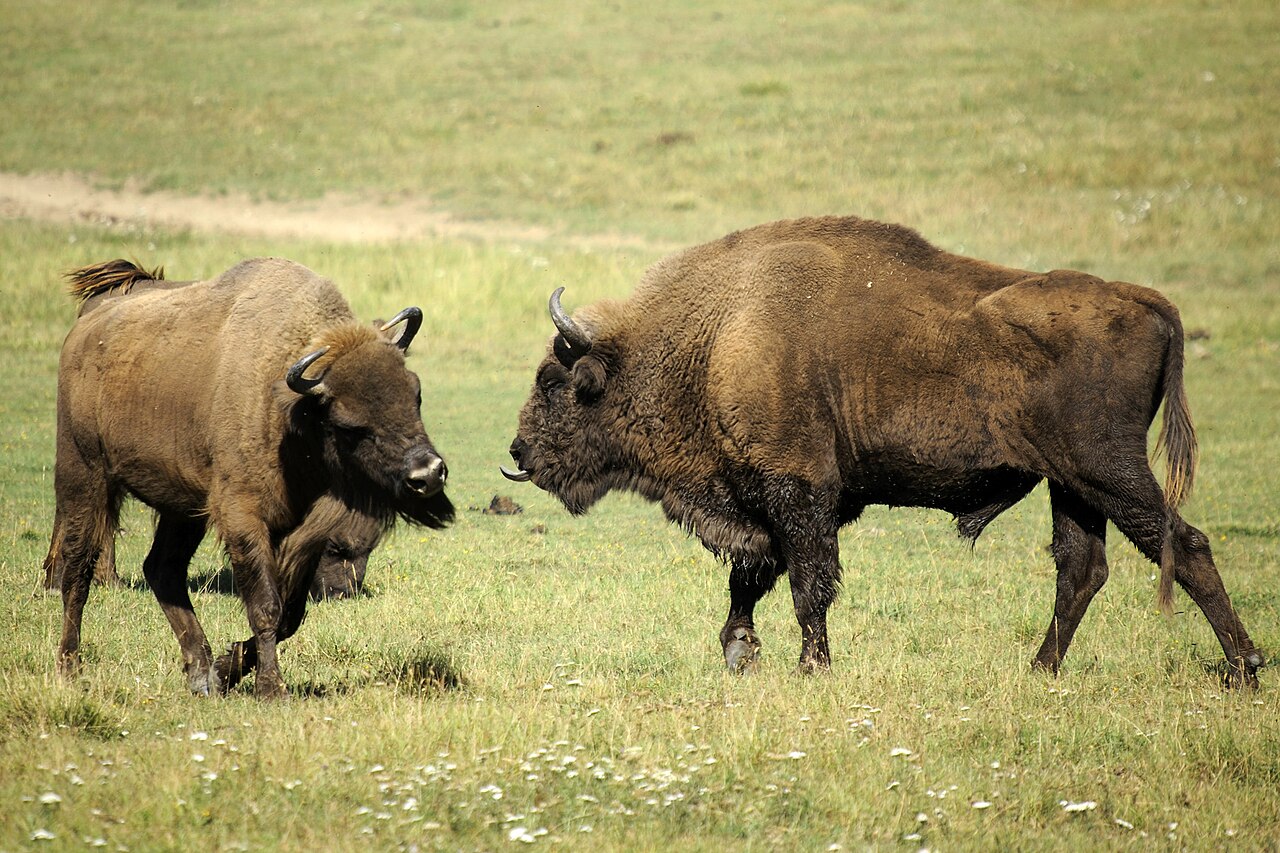Wondering what went right this week in the conservation world? We’ve got you covered with our Conservation Optimism Round-Up! We are collating stories of optimism from around the globe so that you never miss your dose of weekly motivation.
(Featured image credit: Valène Aure via Wikimedia Commons)
1. Mongolia announces $198-million investment to safeguard its grasslands
“The Government of Mongolia, The Nature Conservancy (TNC) and others, announced the launch of Eternal Mongolia [which] will dramatically expand and strengthen the effectiveness of the country’s entire National Protected Area network, support sustainable herding practices, invest in the sustainable tourism industry and set an unprecedented example to the rest of the world about the value of land and freshwater conservation.”
Thanks to #conservation efforts, a USD 198 mil investment now supports #community-driven conservation initiatives in 14.4 mil ha of #grassland! #conservationoptimism #LetNatureThrive https://t.co/17iYtguT1w
— Global Conservation Solutions (@_GCS_) May 4, 2024
2. Education & research bring Rio’s dolphins back from the brink of extinction
Meet biologist Leonardo Flach, who studies Guiana dolphins in Rio de Janeiro’s Sepetiba Bay and is working to protect them by campaigning for cleaner waters, free from chemicals and sewage, in the bay the dolphins call home. “Flach’s research and activism helped lead to the creation of a 250 km2 (97 m2) protected marine reserve […] which prohibits industry and predatory fishing. He also coordinated courses that awarded local young people a boat driving license, providing them an alternative income to fishing by guiding wildlife tours, such as dolphin watching, instead.”
“We have to provide an alternative type of activity so that they can maintain their activities at sea and make a living at the same time without harming others and the marine ecosystem,” Flach said.”
Image Credit: Mongabay
3. The gardeners who welcome the insects eating their plants
In this article from the BBC, read about how some gardeners are embracing the insects munching on their beloved plants to encourage biodiversity in their yards and gardens. “My garden is primarily for insects,” says Matthew Shepherd, director of outreach and education at the Xerces Society for Invertebrate Conservation in the US, a non-profit organisation that uses science to protect wildlife. “It gets pretty tatty just because there’s so many things chewing and munching.”
“It might seem unlikely that diminutive private gardens can make much of a difference to their decline. But Shepherd insists that they can: “We’re talking about small animals, so small areas do help.”
Image Credit: Getty Images
4. Rewilding efforts expanded in the Southern Carpathians, Romania
“Between 2014 and 2023, Rewilding Europe and WWF Romania translocated nearly 100 European bison to Romania’s Țarcu Mountains – a part of the Southern Carpathians rewilding landscape where wild bison had been absent for at least 250 years.
“With the free-roaming bison now thriving, rewilding in the Southern Carpathians moved up a level in 2023, with Rewilding Romania team taking steps to expand their efforts and impact across the landscape and beyond.
“The new agreements – which will support rewilding efforts across more than 105,000 hectares of additional land – will enhance cooperation, ensure the growing bison herds can continue to increase their geographical range safely, and allow the partners to explore opportunities for scaling up wildlife comeback beyond bison.” This includes the exciting reintroducing griffon vultures, a keystone species that existed in the country until the twentieth century.
🌿 Expanding Rewilding in the #SouthernCarpathians!#RewildingRomania officially partnered up with both Retezat National Park & Domogled-Valea Cernei National Park, supporting #rewilding efforts across more than 105,000 hectares of additional land! 🦬
— Rewilding Europe (@RewildingEurope) May 1, 2024
👉 https://t.co/30LtIDQ0p7 pic.twitter.com/V6GugFhisz
5. Fin whales making a strong comeback in the Southern Ocean
“[M]arine scientists can confirm the “comeback” of fin whales in a key region of the Southern Ocean. Whale counts that have recently been presented in a scientific article show a record number of fin whales in the Scotia Sea in the Southwest Atlantic sector of the Southern Ocean.
“– It is simply sensational. The results show over 50,000 fin whales in the Scotia Sea alone. That is more than three times higher than previously estimated for the entire Southern Ocean, says marine scientist Martin Biuw.”
Fin whales are making a strong comeback in the Southern Ocean.
— Blue Planet Society (@Seasaver) May 1, 2024
"It is simply sensational. The results show over 50,000 fin whales in the Scotia Sea alone. That is more than 3x higher than previously estimated for the entire Southern Ocean." Martin Biuw.https://t.co/Td3sjgTGQw
6. Funds all raised for largest conservation agreement in Canadian history
“In time for Earth Day today, the Nature Conservancy of Canada (NCC) has announced all funds have now been raised to conserve a southern Alberta ranch. It’s the largest such conservation agreement in Canadian history, covering 22,000 hectares of grasslands and wetland habitats.
A new #protectedarea in #Canada now conserves more than 22,000 hectares of #grassland and #wetland #ecosystems, important habitat for numerous #species including the #Pronghorn #Antelope!#conservationoptimism #LetNatureThrive https://t.co/ur2qM02MuU
— Global Conservation Solutions (@_GCS_) May 5, 2024
7. Stories of hope from the Tiger Conservation Coalition
“Though it’s true that tigers are classified as ‘Endangered’ on the IUCN Red List of Threatened species, this story isn’t one of ill portent and decline. Rather, it is a story woven from the threads of hope, challenge, and relentless effort […]
“Over the past 12 years, tiger populations have begun to rise in five countries – increasing for the first time in over a century. Three Himalayan neighbours increasing most spectacularly: Bhutan, India and Nepal.
“Despite these successes, the path to tiger conservation is not without challenges. Habitat loss, poaching, illegal wildlife trade, and human-wildlife conflict continue to threaten tiger populations across their range. However, within these challenges lie opportunities — opportunities to innovate, to strengthen policies, and to foster community engagement in conservation efforts.”
We know that the #FutureWithTigers also supports meeting global biodiversity and climate change targets.
— UN Biodiversity (@UNBiodiversity) May 5, 2024
Take a look at how the Tiger Conservation Coalition is taking action: https://t.co/KfU7a653ov#investintigers #PartOfThePlan #BiodiversityPlan@UNDPClimate @IUCNsos
Have a story to share for our weekly round-up? Use #ConservationOptimism on Twitter, Facebook, LinkedIn and Instagram!




